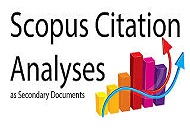Pendidikan Vokasi BTEC UK di Indonesia: Studi Fenomenologi Esensi Pengalaman Peserta Didik
DOI:
https://doi.org/10.33394/jk.v6i1.2319Keywords:
Vocational Education, University Students Experience, BTEC, Curriculum Management.Abstract
Studying abroad, including in the United Kingdom is one of the aspirations for students and parents in Indonesia. In comparison to directly continuing study overseas, the availability of BTEC UK curriculum in Indonesia allows students to study for 20 months then continued their final year in the country they are planning to go to, including in the UK. Unfortunately, there is no record of the experience of students undergoing this curriculum in Indonesia, even though the curriculum already exists in Indonesia for more than ten years. This study then explores the motivations behind the decisions of students undergoing the BTEC curriculum in Indonesia, their experiences and the outcomes that occur after. Interviews with the 7 BTEC alumni in Indonesia were conducted and analyzed using qualitative phenomenology study. The results obtained that internal motivation is the main trigger whereas external motivation also applies, which is built up through social influence. The experience felt at the beginning was generally difficult to follow because the students were not used to the system, even though some felt excited about the curriculum learning system. In the middle and end of the semester, some of them feel more accustomed to it while some still find it difficult to follow this curriculum. The results in the form of a variety of positive attitudes including courage, self-confidence, and the development of communication skills.
References
Ajzen, I. (1991). The Theory of Planned Behavior. Journal of Studies on Alcohol and Drugs, 179–211. https://doi.org/10.15288/jsad.2011.72.322
Amineh, R. J., & Asl, H. D. (2015). Journal of Social Sciences, Literature and Languages Review of Constructivism and Social Constructivism. ©2015 JSSLL Journal, 1(1), 9–16.
Ariesta, M. (2019). Jumlah Pelajar Indonesia Kuliah di Inggris Meningkat. Retrieved January 1, 2020, from https://www.medcom.id/pendidikan/news-pendidikan/MkMBA1VK-jumlah-pelajar-indonesia-kuliah-di-inggris-meningkat
BTEC. (2015). International Recognition of BTECs. Retrieved from https://qualifications.pearson.com/content/dam/pdf/BTEC-Higher-Nationals/BTEC-international-recognition-brochure_web.pdf
BTEC. (2019). BTEC Qualifications. Retrieved December 22, 2019, from https://qualifications.pearson.com/en/support/support-topics/understanding-our-qualifications/comparing-btec-to-other-qualifications/btec-qualifications-by-level.html
Creswell, J. W. (2015). Penelitian Kualitatif & Desain Riset: Memilih diantara Lima Pendekatan (3rd Editio). Yogyakarta: Pustaka Pelajar.
Cucinelli, D., Gandolfi, G., & Soana, M.-G. (2016). Customer and Advisor Financial Decisions: the Theory of Planned Behavior Perspective. International Journal of Business and Social Science, 7(12), 80–92.
Duckworth, A. L., Peterson, C., Matthews, M. D., & Kelly, D. R. (2007). Grit: Perseverance and Passion for Long-Term Goals. Journal of Personality and Social Psychology, 92(6), 1087–1101. https://doi.org/10.1037/0022-3514.92.6.1087
Korstjens, I., & Moser, A. (2018). Series: Practical guidance to qualitative research. Part 4: Trustworthiness and publishing. European Journal of General Practice, 24(1), 120–124. https://doi.org/10.1080/13814788.2017.1375092
Kyle, V. A., White, K. M., Hyde, M. K., & Occhipinti, S. (2014). The role of goal importance in predicting university students’ high academic performance. Australian Journal of Educational and Developmental Psychology, 14, 17–28.
Muenks, K., Wigfield, A., Yang, J. S., & Neal, C. R. O. (2017). Supplemental Material for How True Is Grit? Assessing Its Relations to High School and College Students’ Personality Characteristics, Self-Regulation, Engagement, and Achievement. Journal of Educational Psychology, 109(5), 599–620. https://doi.org/10.1037/edu0000153.supp
Pearson. (2019). Pearson Qualifications. Retrieved from https://qualifications.pearson.com/en/support/support-topics/understanding-our-qualifications/find-a-pearson-centre.html?Country=Indonesia
Pearson. (2019). BTEC Higher Nationals Business Specification. Retrieved from https://qualifications.pearson.com/content/dam/pdf/BTEC-Higher-Nationals/Business/2016/Specification/btec-higher-nationals-business-specification.pdf
Pearson. (2017). How are BTECs assessed and graded ? How does a BTEC course work in principle ? Retrieved from https://qualifications.pearson.com/content/dam/pdf/btec-brand/how-are-btecs-graded.pdf
Raut, R. K., Das, N., & Kumar, R. (2018). Extending the theory of planned behaviour: Impact of past behavioural biases on the investment decision of Indian investors. Asian Journal of Business and Accounting, 11(1), 265–292. https://doi.org/10.22452/ajba.vol11no1.9
Satsios, N., & Hadjidakis, S. (2018). Applying the Theory of Planned Behaviour (TPB) in saving behaviour of Pomak households. International Journal of Financial Research, 9(2), 122–133. https://doi.org/10.5430/ijfr.v9n2p122
Soelaiman, T. A. F. (2014). Sistem Pendidikan di Inggris. London: Indonesia Embassy UK. Retrieved from https://atdikbudlondon.files.wordpress.com/2014/05/buku-sistem-pendidikan-di-inggris-edisi-22.pdf
Yin, R. K. (2011). Qualitative Research from Start to Finish. New York: The Guilford Press.
Downloads
Published
How to Cite
Issue
Section
Citation Check
License
License and Publishing AgreementIn submitting the manuscript to the journal, the authors certify that:
- They are authorized by their co-authors to enter into these arrangements.
- The work described has not been formally published before, except in the form of an abstract or as part of a published lecture, review, thesis, or overlay journal.
- That it is not under consideration for publication elsewhere,
- That its publication has been approved by all the author(s) and by the responsible authorities – tacitly or explicitly – of the institutes where the work has been carried out.
- They secure the right to reproduce any material that has already been published or copyrighted elsewhere.
- They agree to the following license and publishing agreement.
Authors who publish with JK agree to the following terms:
- Authors retain copyright and grant the journal right of first publication with the work simultaneously licensed under a Creative Commons Attribution License (CC BY-SA 4.0) that allows others to share the work with an acknowledgment of the work's authorship and initial publication in this journal.Â
- Authors are able to enter into separate, additional contractual arrangements for the non-exclusive distribution of the journal's published version of the work (e.g., post it to an institutional repository or publish it in a book), with an acknowledgment of its initial publication in this journal.
- Authors are permitted and encouraged to post their work online (e.g., in institutional repositories or on their website) prior to and during the submission process, as it can lead to productive exchanges, as well as earlier and greater citation of published work.
- Open Data Commons Attribution License, http://www.opendatacommons.org/licenses/by/1.0/ (default)

This work is licensed under a Creative Commons Attribution-ShareAlike 4.0 International License.








